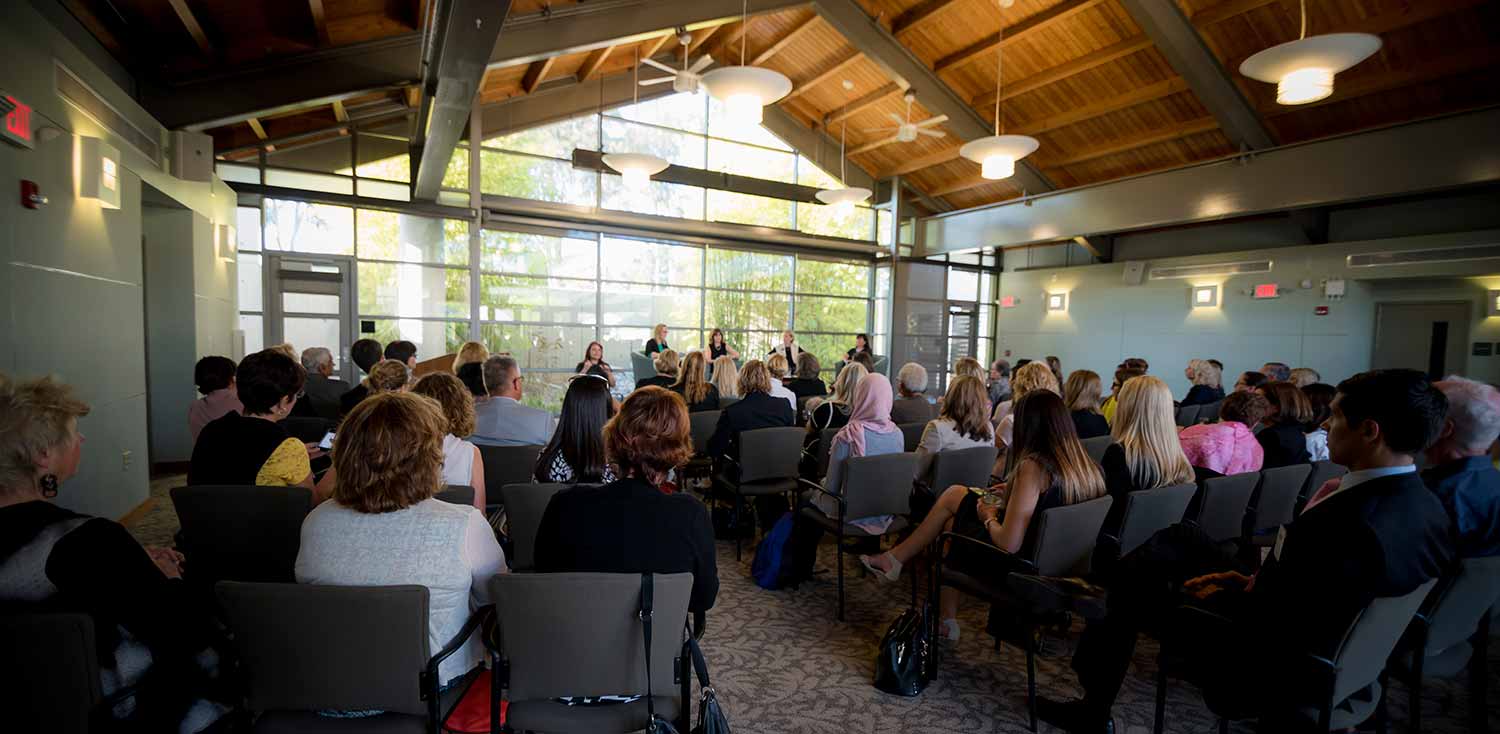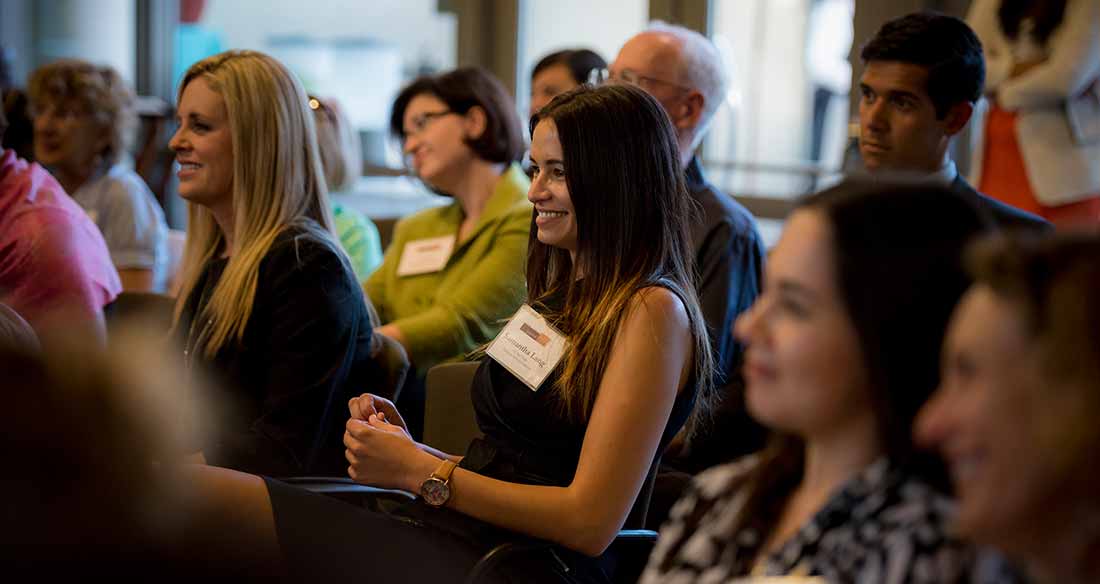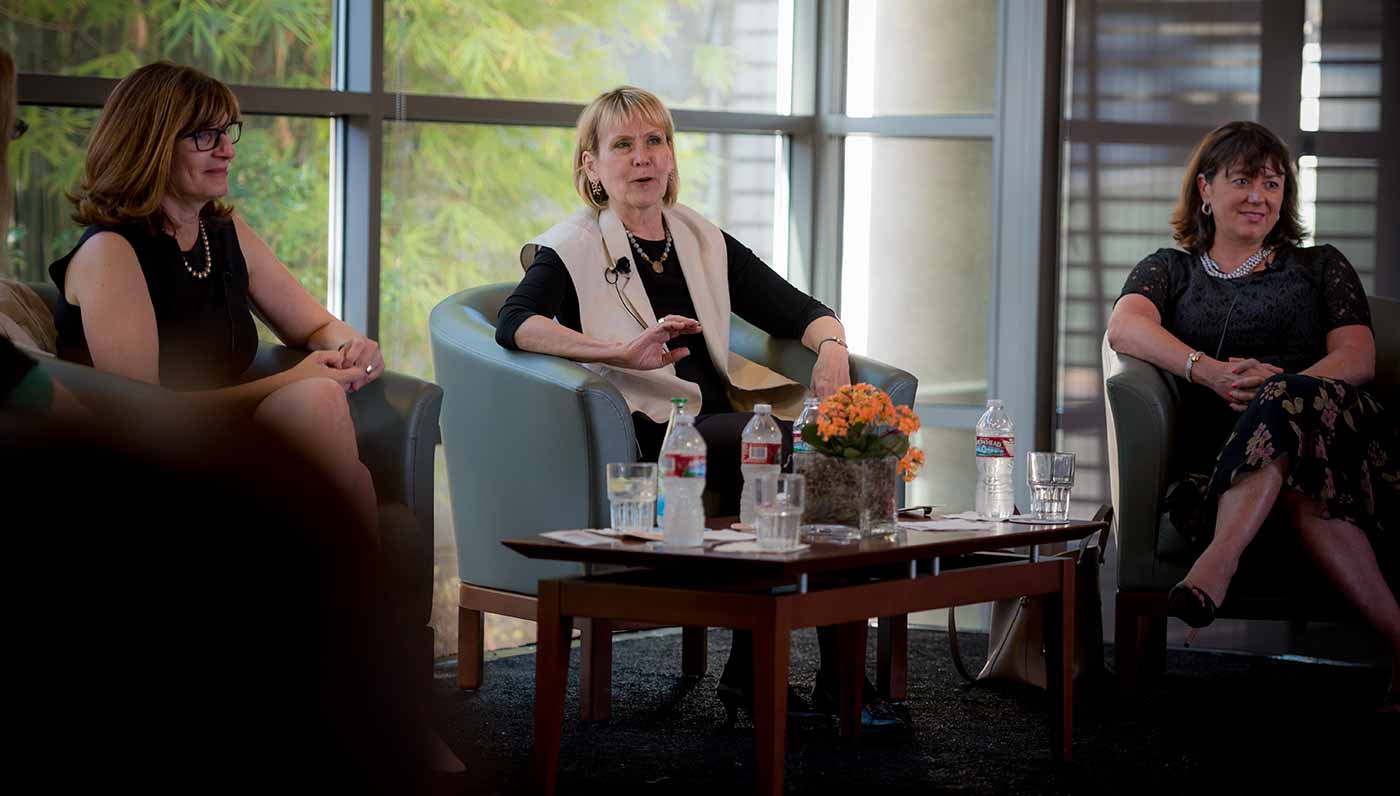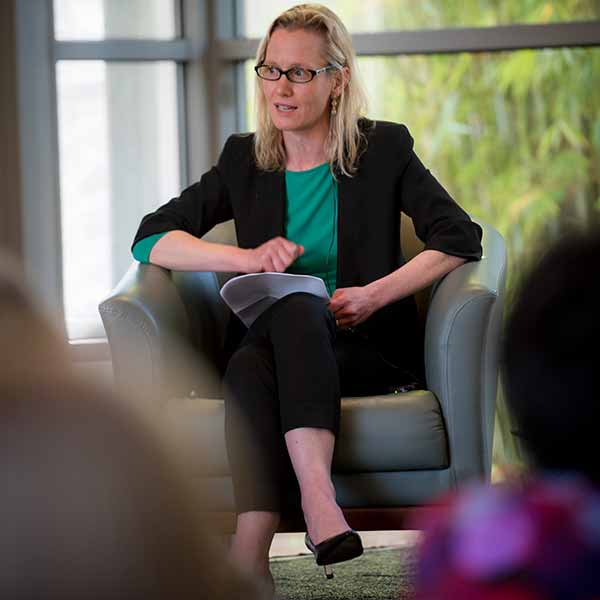
By:
- Inga Kiderra
Published Date
By:
- Inga Kiderra
Share This:

Photos by Alethea Go/UC San Diego Publications
Three Deans, One Alum Take a Look at Women’s Leadership in Higher Education
Women outpace men at every level of education in the United States. When it comes to earning degrees, they get a greater share of high school and college diplomas, and PhDs. But if you look up the ranks—in business or in academia—the numbers thin dramatically. In the University of California system, for example, only 28 percent of tenured faculty members are women. And what percentage of U.S. college presidents are female? Only 26 percent, according to the American Council on Education and to sociologist Marianne Cooper, who came to campus April 29 to moderate the Social Sciences Supper Club “A Culture of Women's Leadership: From Trailblazing to Teamwork.”
The event, held in the Atkinson Pavilion of the Faculty Club, featured three of UC San Diego's women leaders: Cristina Della Coletta, dean of the Division of Arts and Humanities; Margaret Leinen, director of Scripps Institution of Oceanography, as well as vice chancellor for and dean of marine sciences; and Carol Padden, dean of Social Sciences.

Cooper, who earned a bachelor’s at UC San Diego before going on to earn her doctorate at UC Berkeley, served as the lead researcher on the provocative and bestselling book “Lean In: Women, Work, and the Will to Lead,” by Facebook COO Sheryl Sandberg. Author of the recently published “Cut Adrift,” she currently works at Stanford University. Cooper set the tone for the evening with a number of “depressing” stats but quickly pointed to the women onstage as “reason for optimism.”
The discussion ranged from personal histories and leadership styles to giving advice on work-life balance. Here are a few of the highlights.
On leadership
Margaret Leinen: “Getting people to help you is important. Leaders are people with followers! But…you can’t get too far ahead.”
Cristina Della Coletta, recalling a department chair who said it was “lonely at the top:” That’s the first error a leader can make—carving out a space of solitude.”
Carol Padden: “I watch and analyze. Being watchful gives a sense of fairness and equity.”

From left to right: Carol Padden, dean of Social Sciences, Margaret Leinen, director of Scripps Institution of Oceanography and Cristina Della Coletta, dean of the Division of Arts.
On making tough choices
Leinen, citing advice given to her long ago: “Decisions are based on facts. What size cereal box to get at the store depends on how many will be eating or how much room you have in your cupboard at home. Life choices are not decisions—these are commitments. Once you’ve chosen a course, you must commit to it fully.”
On the importance of voice
Padden: “Voice is essential to everything you do. A lot of people think that inclusion means having people in the room, but it doesn’t. It means making voice possible. I’m fully committed to that.”
Leinen: “In academia, you’re usually introduced. Somebody always tells everybody else why you deserve to be there. Not so in the business world. We have a lot to learn from that culture: Tell your own story and introduce yourself.”
On quieting the other voice, the critical one

Sociologist Marianne Cooper.
Cooper: “Women have a critical voice their heads: ‘Am I ready? Should I, could I do it?’ Inequality works through us, shaping how we think and feel. We need to change society and structures…but one of the fastest things we can do is to turn off that critical voice in our own heads. … It’s hard to change how you feel. But it’s important to change how you respond – what you do. Just do it and that builds confidence over time.”
On the pressure to be both “super mom” and “super worker”
Della Coletta: “I wanted to do both, be super mom and super academic. At the end, my answer was to work harder. But I do not recommend that. Now that I’m in a position to mentor women, I try hard to provide an environment where it’s easier to find a healthy balance. There’s a lot we can do about that as leaders—both formally and informally—and I consider it my duty to do so.”
Share This:
You May Also Like
Stay in the Know
Keep up with all the latest from UC San Diego. Subscribe to the newsletter today.


